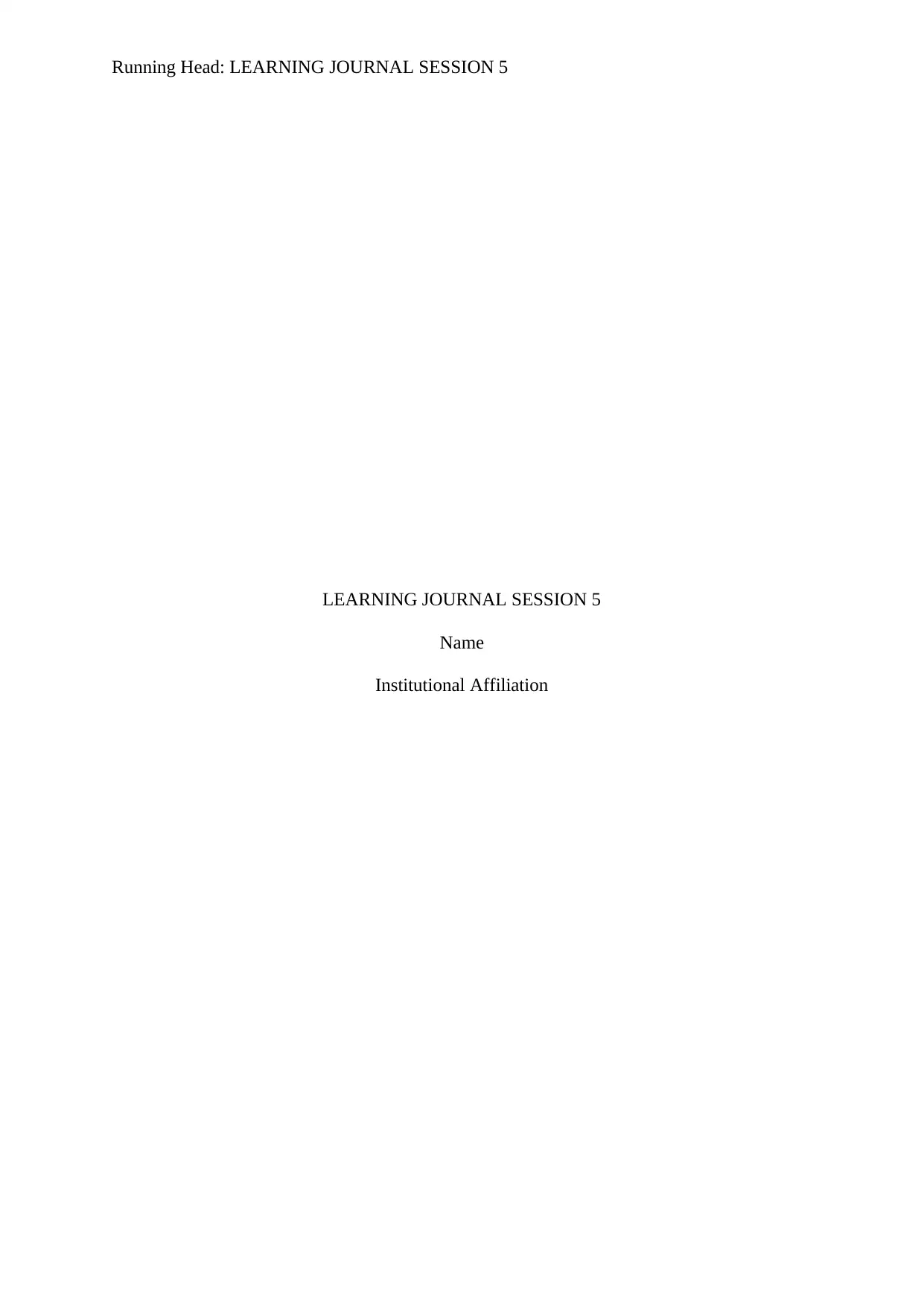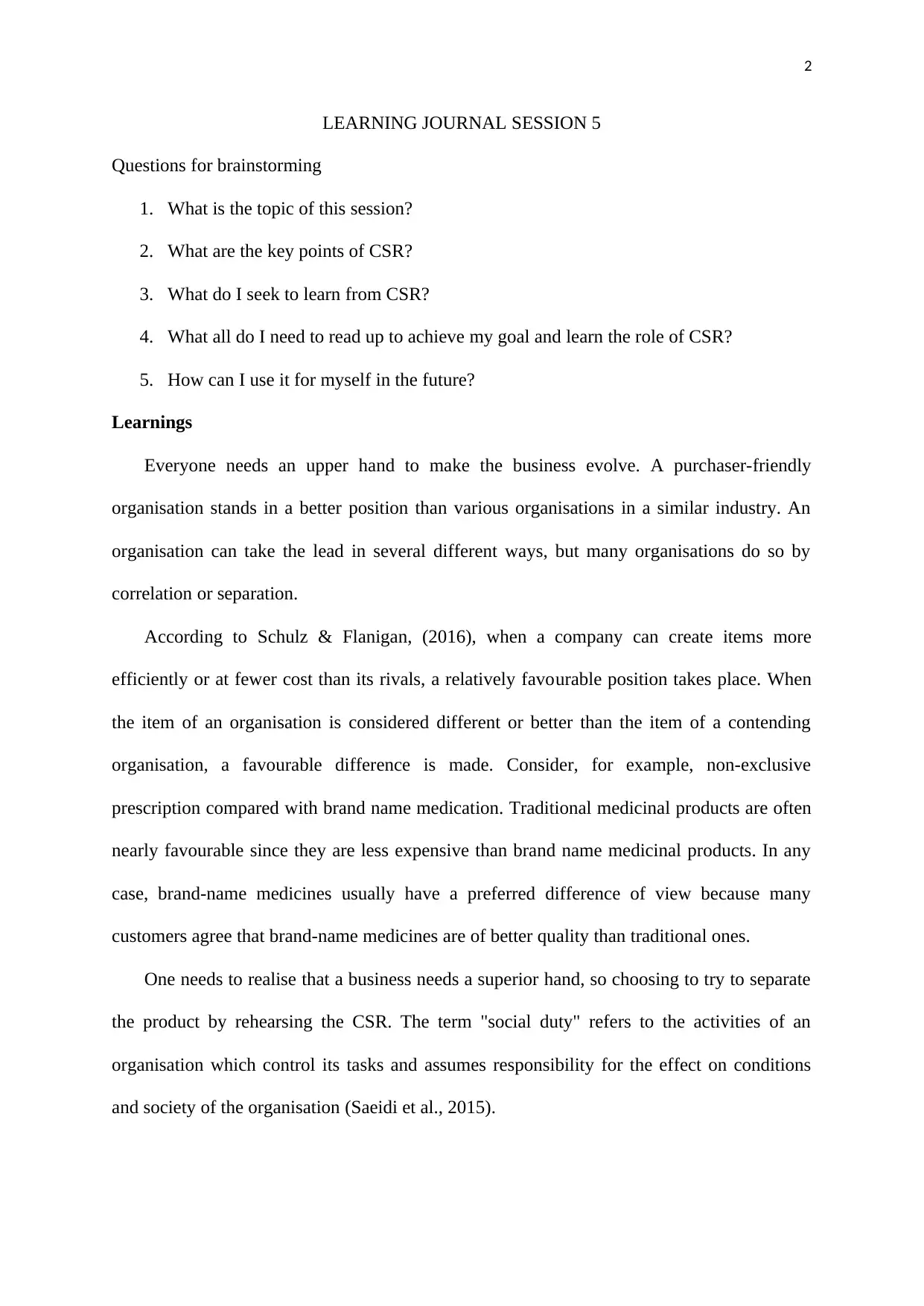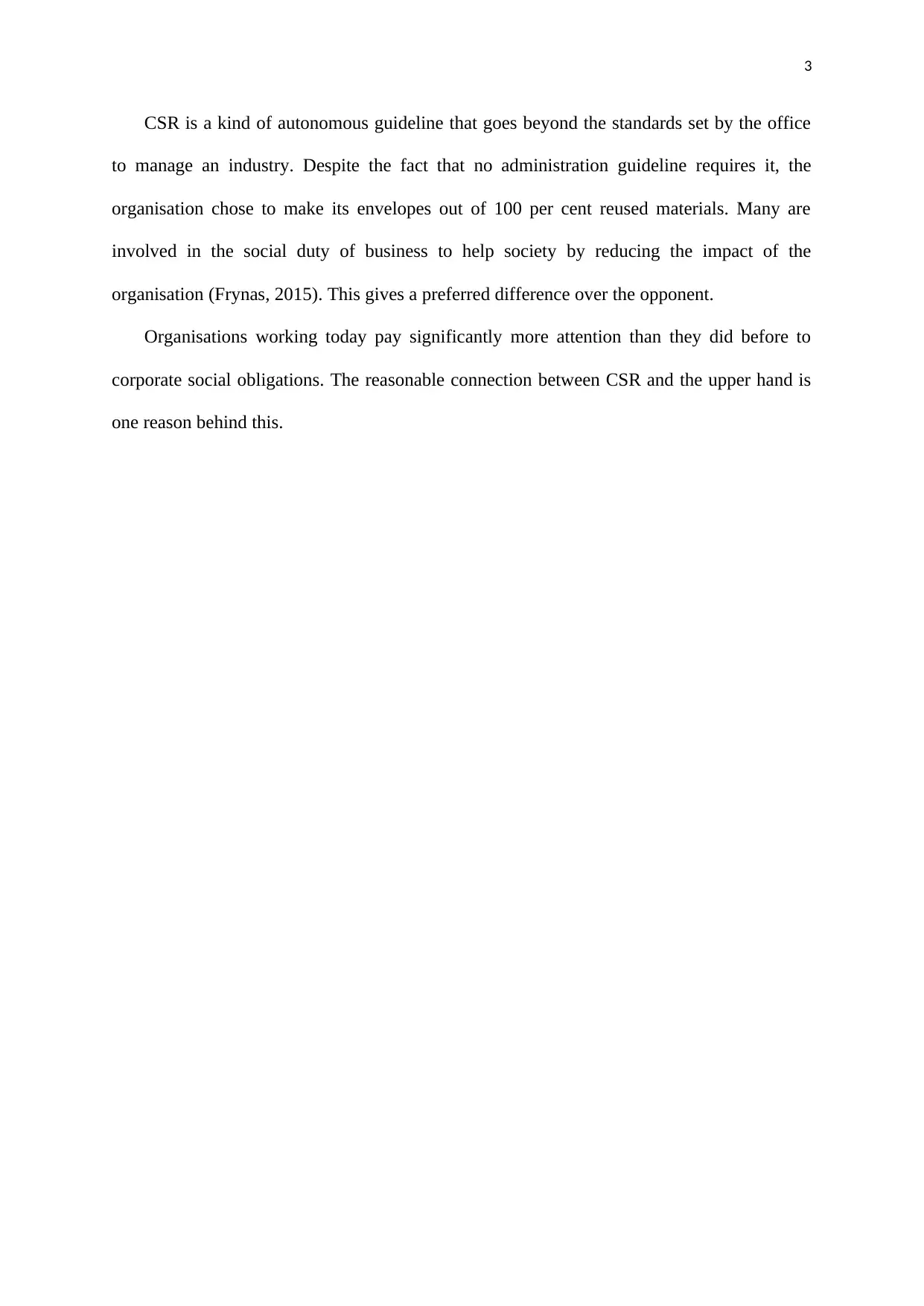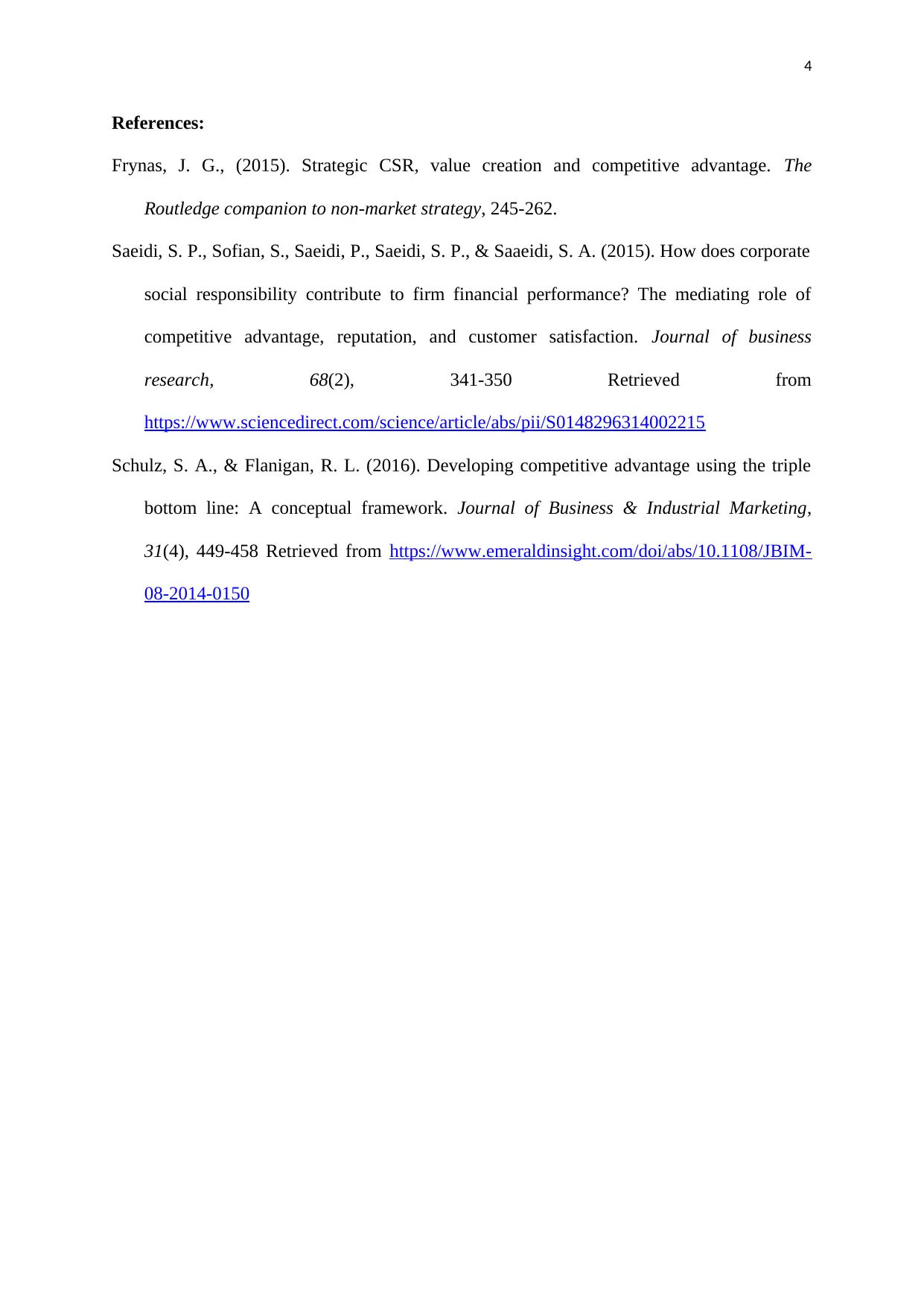Exploring CSR: A Learning Journal on Competitive Advantage - Session 5
VerifiedAdded on 2023/03/23
|4
|571
|24
Journal and Reflective Writing
AI Summary
This learning journal reflects on Corporate Social Responsibility (CSR) and its role in achieving a competitive advantage in business. The journal explores how companies can differentiate themselves through social responsibility initiatives, referencing the importance of creating purchaser-friendly organizations. It discusses the concept of gaining a competitive edge through efficiency, cost reduction, and product differentiation, highlighting CSR as a means of separating a product by focusing on environmental and societal impact. The journal also emphasizes the increasing attention businesses are paying to CSR and its connection to gaining a competitive advantage, supported by academic research. This resource is available on Desklib, where students can find a wealth of study materials, including past papers and solved assignments.
1 out of 4







![[object Object]](/_next/static/media/star-bottom.7253800d.svg)